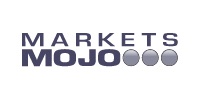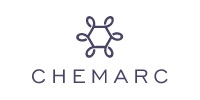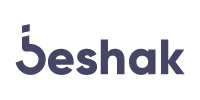INDUSTRY
Edtech & Smart Learning
Seamlessly crafting advanced Edtech tools for smarter education system.

Edtech & Smart Learning, the convergence of Education and Technology, is intrinsically reliant on effective UX/UI design for multiple reasons. Design plays a central role in driving Edtech’s triumph by elevating user experiences, nurturing engagement, and optimizing to make learning goals achievable. A well-orchestrated design ensures that educational platforms and tools are not only user-friendly but also visually captivating, all while upholding accessibility for a diverse array of learning styles.
Integrating meticulous design principles into Edtech solutions cultivates an environment conducive to sustained user participation and interaction. By presenting clarity on user interface, facilitating seamless navigation, and drafting content with visual allure, design constructs an atmosphere prepared for immersive learning.
Moreover, strategic design contemplates the integration of multimedia components such as videos, interactive simulations, and elements of gamification, all of which synergize to amplify comprehension and bolster knowledge retention, while simultaneously invigorating learners’ motivation.
Beyond aesthetics, design within Edtech stands as a champion of inclusivity and accessibility. Upholding the tenets of universal design empowers Edtech platforms to cater comprehensively to an expansive user spectrum, including those with diverse abilities. By doing so, the educational journey remains an equitable and enriching experience for every learner.
In summary, design’s pivotal role within Edtech materializes as a nexus that marries technological prowess with pedagogical aspirations. It serves as the corridor that distils intricate concepts into digestible formats, fosters engagement through aesthetic and interactive brilliance, and ultimately amplifies the educational journey by making learning more engrossing, reachable, and effective.
Our Clients’ Reviews
“Their knowledge and understanding of the UX and behavior space impressed us. Also, the willingness to try new innovation in user behaviour was the reason we found them a perfect fit. Marketmojo was nominated for the FinovateAsia and Finovate Europe awards for being a pioneer in the fintech space.”

Ansha Fernandes
CPO, MarketsMojo
“Silverscoop’s work resulted in a notable increase in traffic and another win was our subscription increased, within 3 months more than 500 customers were onboarded. Coming up with a range of creative and inventive ideas, the team designed the experience and the interface with the users in mind.”

Aashish Bari
Former Product Head, Chemarc
“Delivers right, delivers on time. The UX feels fabulous, It clearly reflects team’s passion in delivering world-class user experience. It’s rare to find a Product/UX professional with so much depth and immense business acumen. Being a business and outcome focused professional, you get way more than your initial specs.”

Mahavir Chopra
Founder, Beshak
Online Learning Platforms
Edtech often revolves around digital platforms that offer a centralized space for educators to create and deliver educational content, assignments, and assessments. These platforms facilitate remote learning and enable students to access resources at their own pace.
Interactive Content
Edtech solutions include interactive multimedia content such as videos, simulations, animations, and virtual reality experiences. These elements engage learners and provide immersive ways to comprehend complex topics..
Adaptive Learning
Adaptive learning systems utilize algorithms to tailor educational content to individual students’ strengths, weaknesses, and learning styles. This personalized approach optimizes learning outcomes and promotes self-paced learning.
Gamification
Gamification techniques infuse educational content with game-like elements to boost engagement. Points, badges, leaderboards, and challenges motivate students to actively participate and complete tasks.
Assessment Tools
Edtech platforms offer tools for creating and administering quizzes, tests, and assignments digitally. These tools streamline the assessment process, provide instant feedback, and enable data-driven insights into student progress.
Collaboration Tools
Virtual classrooms and collaboration features enable students and educators to interact in real-time, facilitating discussions, group projects, and peer-to-peer learning regardless of geographical locations.

Mobile Accessibility
A plethora of Edtech solutions extend accessibility to mobile devices, empowering learners to seamlessly engage with content while on the move. The integration of mobile apps and responsive design thoughtfully caters to the evolving preferences of contemporary learners, who value the flexibility and convenience of learning anytime, anywhere.
Data Insights
Edtech solutions frequently collect comprehensive data on student performance, participation, and engagement. This valuable information offers the opportunity for analysis to unveil emerging patterns, evaluate efficacy, and guide informed decisions in shaping instructional strategies.
Learning Management Systems (LMS)
Functioning as central hubs, LMS platforms efficiently organize and oversee educational content, assignments, grading, and communication channels between educators and students.
Virtual Reality (VR) and Augmented Reality (AR)
These cutting-edge technologies immerse students in captivating experiences, transporting them to virtual learning environments, historical reenactments, or interactive 3D models, thereby amplifying comprehension and engagement.

Artificial Intelligence (AI)
Leveraging AI-powered tools, Edtech offers astute feedback, discerns learning patterns, and aids in crafting personalized learning journeys, ultimately enhancing the educational experience.
Microlearning
Edtech frequently champions microlearning, delivering concise educational content tailored for brief consumption periods, catering to busy schedules and bolstering knowledge retention.
Accessibility Features
Edtech solutions increasingly prioritize accessibility, with features like screen readers, closed captions, and alternative formats to ensure inclusivity for learners with disabilities.
Teacher Professional Development
Edtech platforms offer resources and training for educators to enhance their teaching methods, technological proficiency, and digital literacy skills.
Want to get started with a project? Speak to our Experts.
Expertise in Specialized Domains
From aviation training academies to peer-to-peer learning platforms, our profound knowledge of Edtech product design empowers numerous prominent Edtech brands. We facilitate diverse groups of learners in enhancing their skills and knowledge through cutting-edge interactive and intelligent learning interfaces.
Designs Rooted in Empathy
Our approach centers on creating interfaces that prioritize accessibility and user-friendliness, catering to learners with a spectrum of needs and preferences. This encompasses various formats, ranging from audio and video to text and subtitles. Additionally, we incorporate dynamic elements like animations, simulations, and games, fostering heightened engagement and enriched learning experiences.
Incorporating Scientific Learning Frameworks
Our approach involves integrating scientific frameworks into UI/UX designs, harnessing the insights of cognitive psychology, neuroscience, and educational theory. By leveraging these frameworks, we shape the creation of impactful learning experiences. This results in interfaces that not only facilitate knowledge and skill acquisition but also cultivate engagement, motivation, and an elevated overall user experience.

Fostering Skill Enhancement
Through the integration of dynamic interactive elements and visually captivating components, we champion a culture of active learning, augment retention, and ignite motivation. By aligning edtech design with user-centric principles, we forge experiences that are conducive to skill development, thereby propelling favorable learning results.
Crafting Revenue Models for Startup Success
In the dynamic landscape of educational technology, Edtech startups deploy various revenue generation models to sustain their operations and drive innovation. These models encompass diverse strategies that capitalize on the unique value propositions of their offerings. By understanding these mechanisms, we gain insights into how Edtech ventures secure their financial viability while revolutionizing the way we learn.
Selective Projects
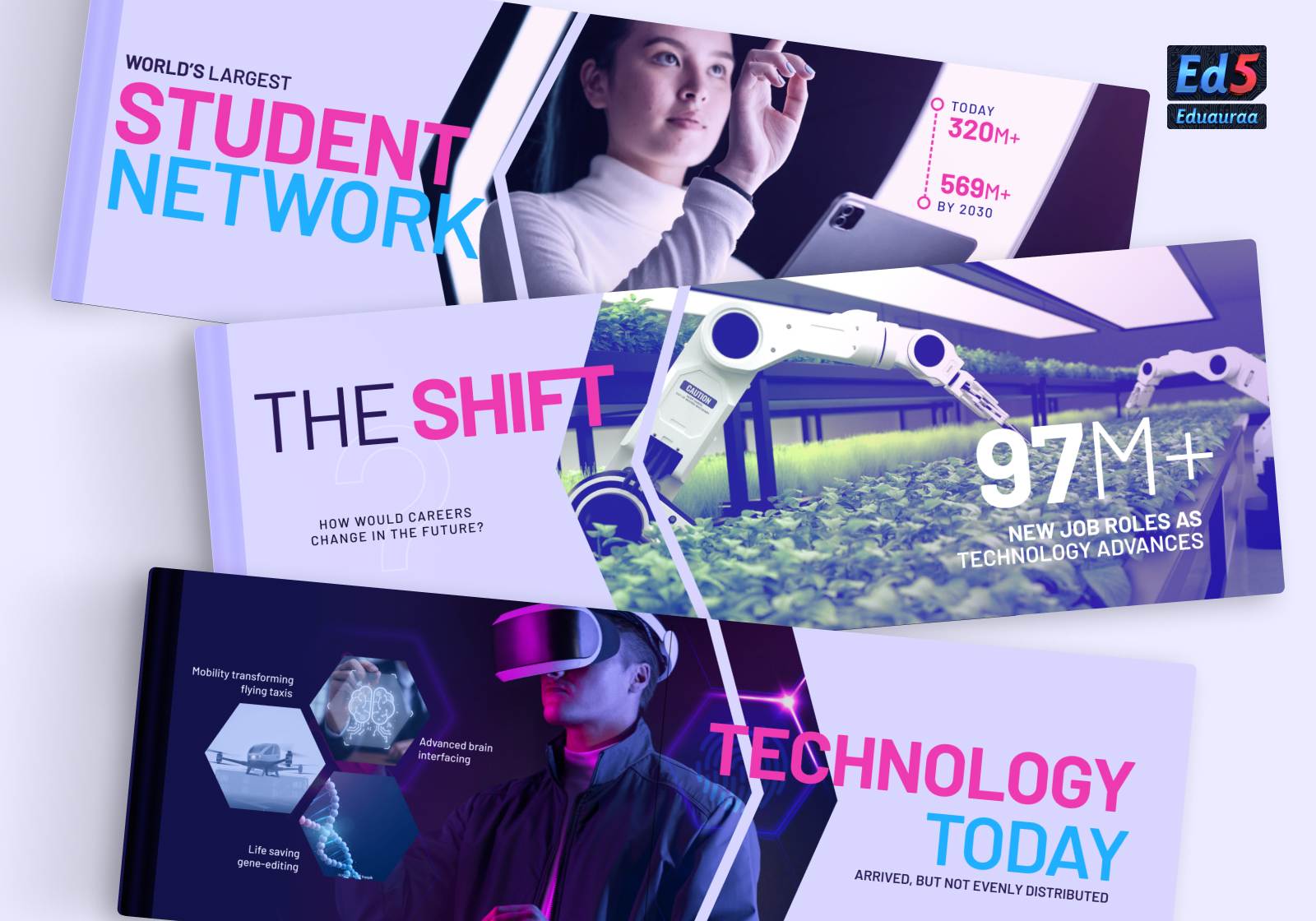
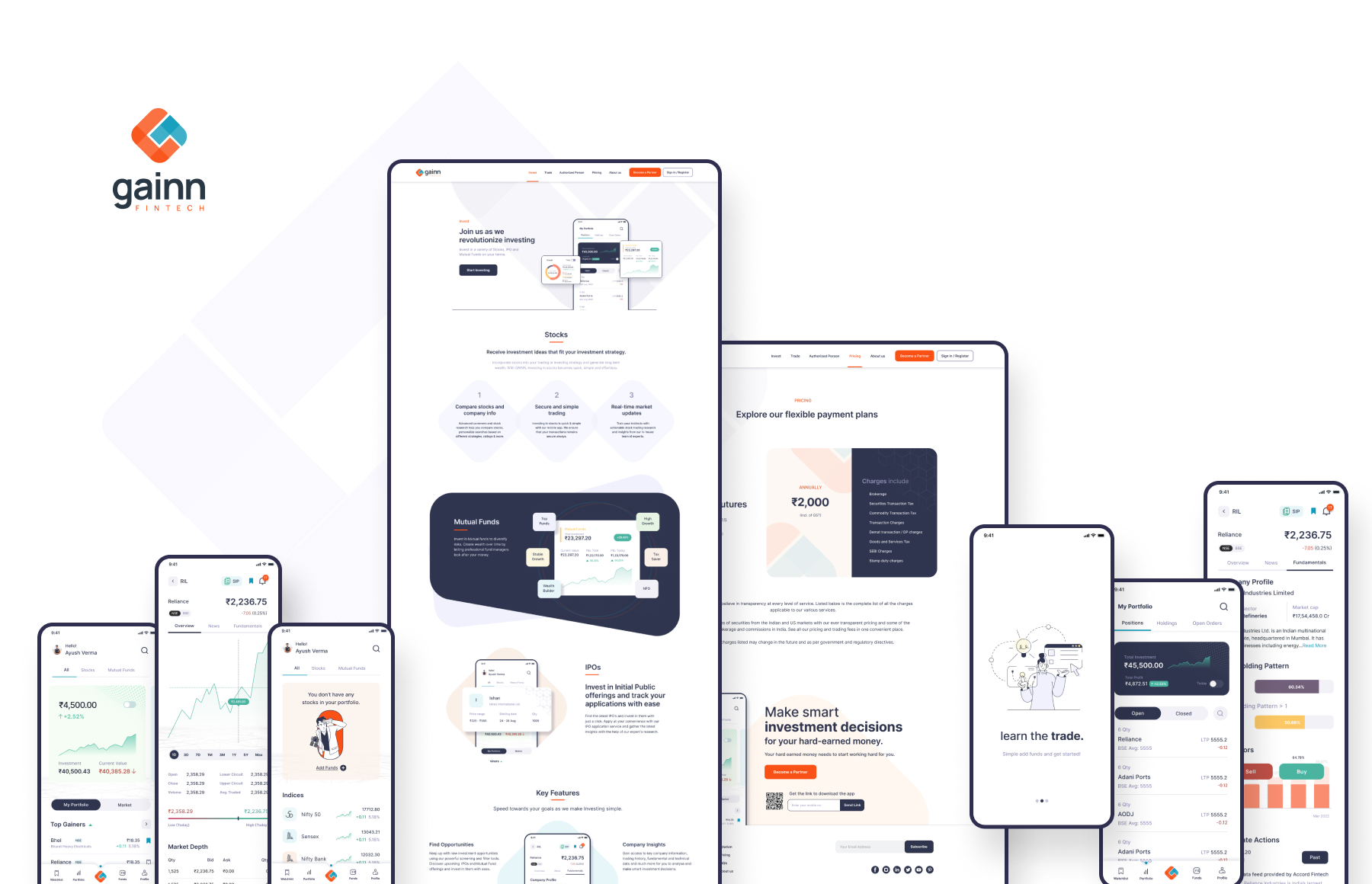
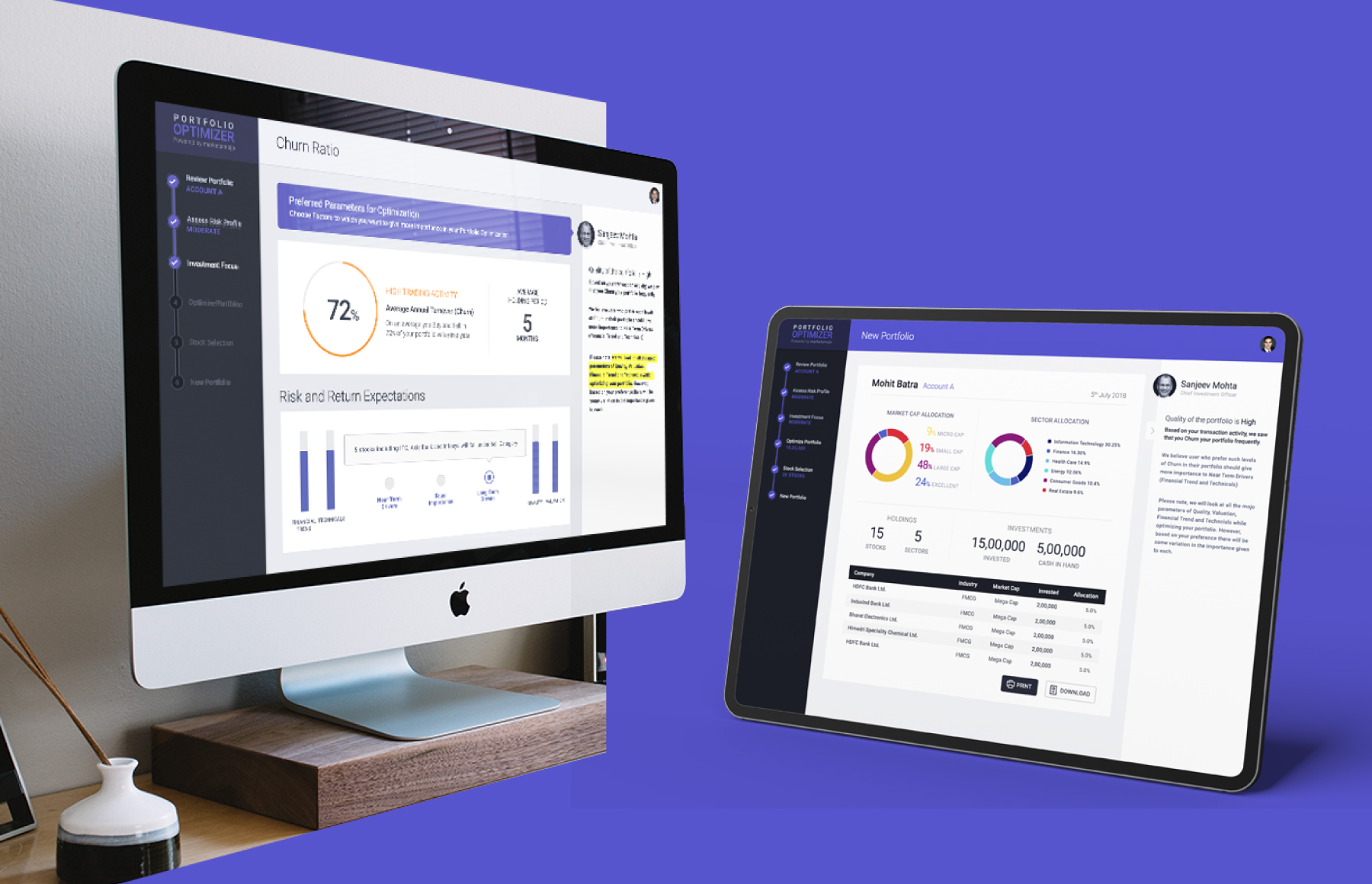
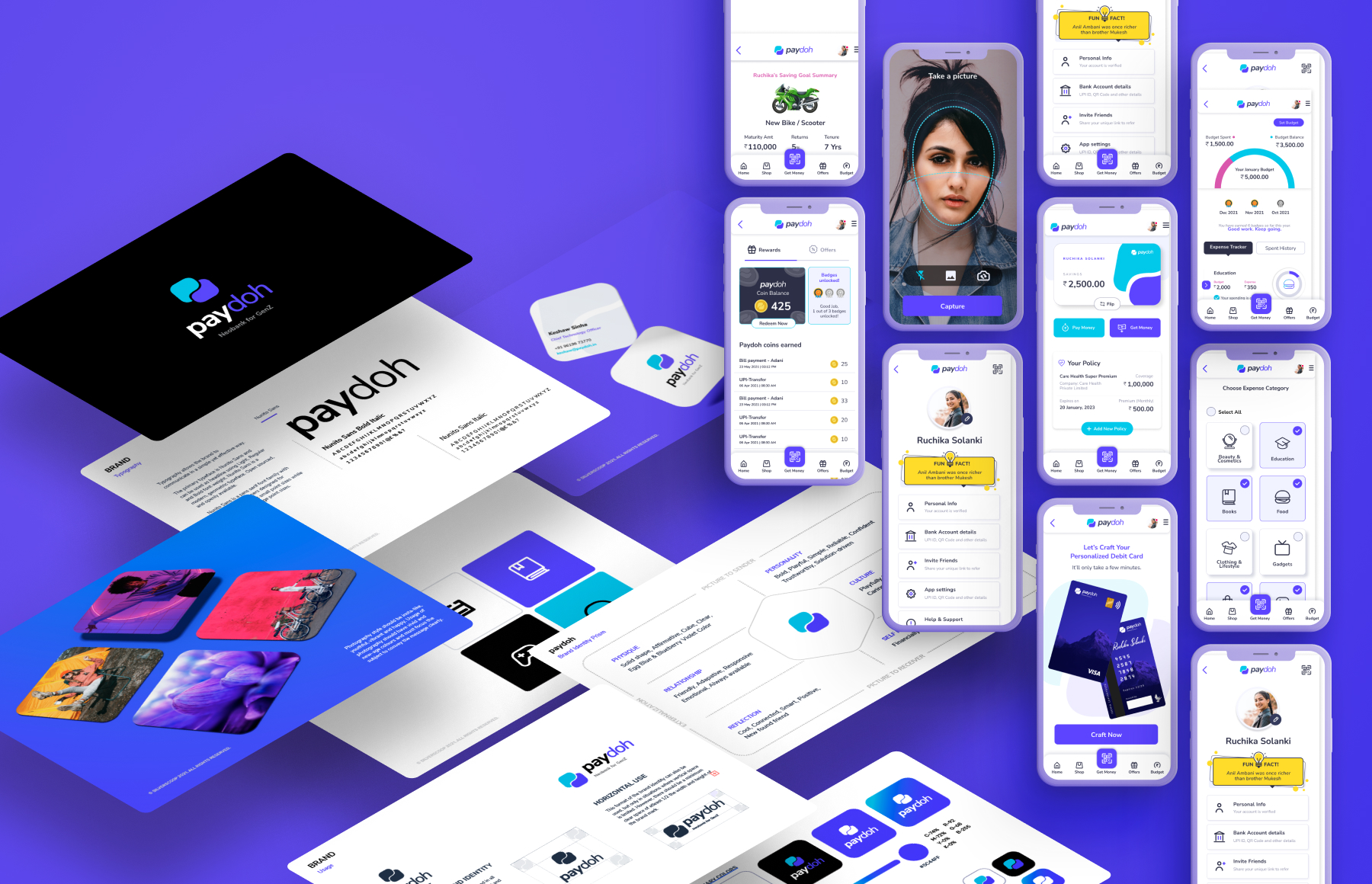
Personalized Learning Pathways
As technology advances, Edtech is focusing on creating highly personalized learning journeys for each student. Adaptive learning algorithms analyze individual performance data and tailor educational content to match the learner’s pace, strengths, and areas needing improvement.
Immersive Experiences with AR and VR
Augmented Reality (AR) and Virtual Reality (VR) are gaining prominence in education. These technologies offer immersive experiences, allowing students to interact with three-dimensional content, simulations, and virtual environments that enhance understanding and engagement.
Microlearning for flexibility
Short, bite-sized lessons or microlearning modules are becoming popular. These concise lessons cater to busy schedules and short attention spans, enabling learners to acquire knowledge in smaller chunks and at their own pace.

Data-driven learning insights
In the financial realm, ethical and transparent design centers on cultivating trust through clear communication and responsible practices. Interfaces openly present terms, fees, and risks, empowering users with accurate information. By prioritizing fairness, ethical design prevents deception, establishes credibility, and fosters a positive user experience, nurturing enduring relationships founded on integrity and transparency.
Collaborative and Social Learning
Edtech is incorporating features that facilitate collaborative learning. Online platforms are integrating discussion boards, group projects, and interactive forums that encourage peer-to-peer interaction and knowledge sharing.
AI-Powered Personalized Feedback
Artificial Intelligence (AI) is being used to provide instant and tailored feedback to students. AI algorithms can analyze assignments, quizzes, and assessments to offer constructive feedback that aids in skill development.
Gamification Elements for Engagement
Gamification techniques are being integrated into learning platforms to enhance engagement and motivation. Points, badges, leaderboards, and challenges are used to create a more interactive and enjoyable learning experience.
Accessibility and Inclusion Focus
Edtech is prioritizing accessibility features to ensure inclusivity for learners with disabilities. Platforms are incorporating features such as screen readers, closed captions, and adaptable interfaces to cater to diverse learning needs.
Coding and Computational Skills
In an era focused on digital readiness, coding and computational thinking are progressively vital in education. Edtech solutions are introducing coding courses and platforms that facilitate the acquisition of programming skills.
Blockchain for Credential Verification
Blockchain technology is revolutionizing credential validation by providing a secure and tamper-resistant method for verifying qualifications and certifications, enhancing their credibility.
Global Learning and Cultural Exchange
Edtech is facilitating cross-cultural learning and collaboration. Virtual exchange programs and online platforms connect students from different parts of the world, promoting cultural understanding and diversity.
Continuous Professional Development
Edtech is extending its reach to educators by offering online courses, workshops, and resources for professional development. Teachers can stay updated on the latest pedagogical techniques and technology trends.

